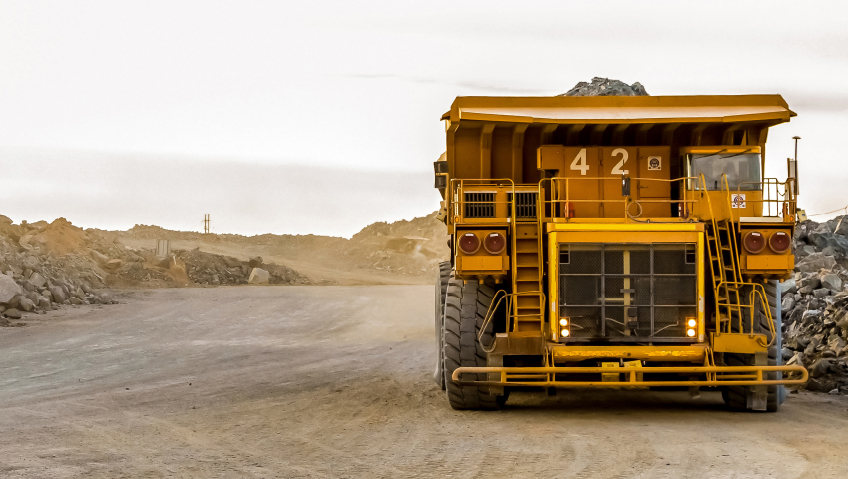In a mix of newly revitalized ethical responsibility and the sort of innovation and energy you’d expect of industry, businesses everywhere you look are going green, and the resource sector is no exception.
Mining companies, oil and gas, forestry and other resource industries are changing their business practices in positive ways. Corporate Social Responsibility (CSR), also known as corporate citizenship, sustainable development, and corporate accountability, is today an integral part of the DNA of many companies.
More than just a buzzword, CSR is woven into the fabric of today’s codes of business conduct and ethics. Self-regulating, CSR demonstrates to the company, to investors and stakeholders, and to the public that the business balances its own needs, such as profitability and growth, while aligning itself with society’s humanitarian, economic, and environmental needs.
Much more than just ‘giving back to the community,’ being an upstanding corporate citizen benefits the company through investment, increasing brand awareness, positivity and greater camaraderie in the workplace, enhanced community involvement, volunteerism, donations of money or product, and being more connected to society.
In fact, the subject of corporate social responsibility is so prominent today that it is frequently a cover story in major business publications including CR and its annual 100 Best Corporate Citizens list.
Resource sector responsibilities
Ranked on the list of leading corporate citizens are many well-known entities, including global insulation fiberglass and roofing manufacturer Owens Corning, American multinational technology company Intel Corp., and consumer food company General Mills, Inc.
Along with these companies are others in the resource sector including Sempra Energy, Xcel Energy, and NRG Energy, Inc. With carefully weighted scoring, factors considered for the 100 Best Corporate Citizens list include human rights, governance, financial, ISS ESG corporate ranking (an arm of Institutional Shareholder Services Inc. and a leading provider of social, environmental, and governance solutions), climate change, and other critical areas.
Not to be outdone, resource-based businesses like mining, petroleum, and logging are becoming more socially and environmentally conscious, and embracing green initiatives. From saving rapidly dwindling resources such as water to cutting costs and reducing materials, the truth is that going green also has its benefits for companies, both internally and externally, from the perspective of shareholders and the public.
In the pulp and paper industry, one of the long-time environmental stewards is Domtar. With its roots going back over 170 years to its founding in Britain, the company has a lengthy history of green initiatives. In the past decade it has achieved an impressive 18 percent reduction in greenhouse gas (GHG), and in the past seven years an 18 percent reduction in waste products diverted to landfill.
In its latest Sustainability Report A Better Future Together (2019), the company outlined its commitment to responsibility, engagement and efficiency, including sourcing wood responsibly, and “having a positive social and economic impact in our communities.”
It has also reduced its environmental impact by fueling mills with renewable energy, and by recycling and using by-products “from the manufacturing of fiber-based products.” The less waste generated, the better.
Breaking the plastic cycle
In the field of packaging, AptarGroup, Inc. is an industry leader in sustainability. Known worldwide for its beauty and home, food and beverage, and pharma and food packaging products, the company is behind lines of fragrance pumps, lotion dispensers, aerosol and bag-on valves, and other related items.
Committed to social, economic and environmental sustainability, AptarGroup’s Corporate Sustainability Report quoted company President and Chief Executive Officer Stephan Tanda, Aptar as saying, “We cannot afford to sit idle. We must address the plastic pollution problem and sustainability at large.”
Keeping waste to a minimum, the AptarGroup implements a sustained Landfill Free Program. Initiated in 2015, the program – based on the Zero Waste International Alliance (ZWIA) scheme – is validated through a third party, and demonstrates a minimum of 90 percent of waste being reused, or recycled.
Working toward landfill free certifications, ISO 14001 and ISO 500001, the company proudly displays its Aptar Sustainability Certifications on its website at https://www.aptar.com/sites/default/files/files/Sustainability%20Certifications.pdf.
As a corporate response to how the world views, uses and reuses plastic products, the company signed the New Plastics Economy Global Commitment early last year.
With over 250 signatories representing 20 per cent of plastics produced worldwide, the Commitment is aimed at eliminating unnecessary plastic products, and undertaking innovation that will see plastic “safely reused, recycled or composited.” It is also an undertaking to “circulate used plastic to keep it in the economy and out of the environment.”
Along with AptarGroup and Domtar, other industry leaders in the green arena include ConocoPhillips.
Bringing on biodiversity
A U.S.-based multinational energy company, ConocoPhillips created a five-year Biodiversity Action Plan in 2013 to maintain the health of the ecosystem, including at-risk habitats, and humans.
“We work to understand and mitigate our potential impact on biodiversity for global operations located across a diverse set of ecosystems,” says the company on its website. “Each business unit and major project is responsible for understanding and managing local biodiversity risks and potential cumulative effects through the life cycle of our assets.”
Integrating sustainability into its day-to-day operations, the company remains a leader in reducing the environmental impact of its operations, and more, including human rights, adopting a carbon strategy, developing its “first large-scale produced water reuse project,” and developing Biodiversity Offset Guidelines.
Founded almost 100 years ago, worldwide international oilfield services giant Schlumberger continues developing technologies benefiting the environment.
Addressing global stewardship issues including environmental performance, material issues, advancing technology and environmental engagement, the company’s initiatives include aligning with the United Nations Sustainable Development Goals (UN SDGs) to reduce its impact on the environment and encourage technological development.
Creating policies addressing biodiversity “to eliminate, minimize, mitigate, and manage significant ecosystem or biodiversity impacts,” Schlumberger also manages environmental risk, and undergoes third-party audits of its environmental, safety and health data. This includes capturing waste carbon through the Schlumberger Carcon Services, which is active in dozens of carbon capture and storage (CCS) projects globally.
Reduce, reuse, recycle
Long considered one of the biggest polluters, the mining sector is making big changes worldwide to benefit the environment and, hopefully, improve its image.
Years ago, many believed that resources were limitless. That’s no longer the case. Once considered abundant, water is now considered precious. One of the companies leading the way in water and air treatment, waste recovery and zero liquid discharge is Condorchem Envitech. A worldwide environmental engineering firm, Condorchem Envitech works with industries, optimizing their water use through treatment before discharge, or reuse via Zero Liquid Discharge.
A massive consumer of water for its operations, the mining sector used Zero Liquid Discharge techniques such as crystallization and vacuum evaporation to save the cost of disposal. Instead of being dumped, treated water from mine sites can be used for purposes such as livestock watering and industrial applications.
Another way the resource sector is going green is through reclamation. Once the surface mining process is completed, reclamation efforts – including stable soil and planting trees and grasses – are initiated, bringing the land back to its previous state. Worldwide, once barren-looking former mining areas have been transformed through reclamation into farmland, wetlands, forests, public parks, and even golf courses for generations to enjoy.
According to the National Mining Association, a Washington D.C.-based trade organization, over 2.8 million acres of once-mined land has been reclaimed across America since 1978.
Other ways the resource sector is going green is by making the switch to energy-efficient diesel-powered and electric vehicles. By using cleaner fuels and rechargeable batteries, harmful carbon emissions are greatly reduced.
Through forward-thinking resource sector companies putting environmental practices into place, the future of the planet will be cleaner… and a lot greener.













